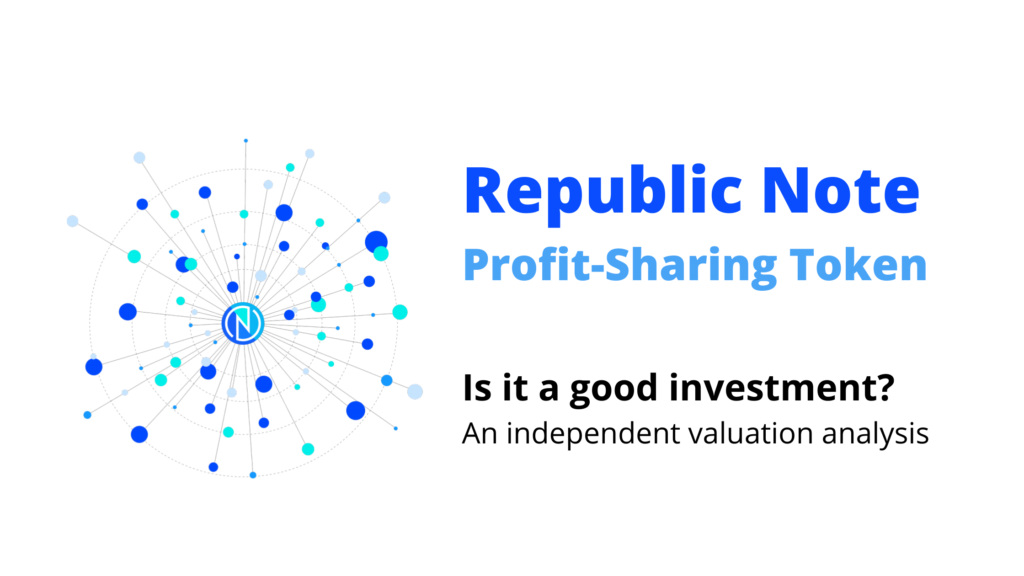Our Response to the SEC’s Proposed Rules to the Exempt Offering Framework

UPDATE 11/2/2020 – the SEC has adopted the proposed rule and updates to Reg CF. Read our summary of the SEC’s final regulatory changes here.
On March 4, 2020, under File No. S7-05-20, the SEC proposed new rules around “Facilitating Capital Formation and Expanding Investment Opportunities by Improving Access to Capital in Private Markets.” In short, this was the culmination of various concept releases in recent years to harmonize, simplify, and improve certain aspects of the exempt offering framework in the U.S. private markets.
As outlined in our previous post, there were many positive changes that the SEC proposed that could lead to attracting more high-quality companies to use Regulation Crowdfunding (Reg CF) and removing or adjusting individual investment limits placed on accredited and non-accredited investors under Reg CF.
While we strongly support the bulk of the Reg CF updates in the SEC’s proposed rules, there are two areas that we believe could cause potential issues for both investors and issuers and potentially even hurt Reg CF in the future.
The two areas of concern we had for investors (and issuers) in the proposal were:
- Eligibility of Crowdfunding Vehicles under Regulation Crowdfunding – Tax Concerns
- Security types eligible under Regulation Crowdfunding should not be restricted
The comment period recently closed on June 1, 2020, so the final rules that the SEC will adopt are still to be seen in the coming months. After reading the dozens of letters submitted from March 2020 through June 1, 2020, we decided to submit an additional comment letter to the SEC to provide perspective on behalf of crowdfunding investors on the two areas above. Below are some excerpts from our comment letter that we submitted to the SEC that break down our concerns in both of these areas.
Our complete comment letter to the SEC can be found here.
For further reading about opinions on the proposed rules, we highly recommend that interested investors and issuers check out the additional concerns and comments in the letters by Nick Tommarello, Founder & CEO of Wefunder and also from Maxwell Rich, Deputy General Counsel of Republic.co.
Eligibility of Crowdfunding Vehicles under Regulation Crowdfunding – Tax Concerns
While we applaud the efforts of the Commission to remove some of the current barriers in the industry today (e.g. the Section 12(g) cap table issue for issuers), and while we overall support the effort and concept of using Special Purpose Vehicles (SPVs) in Reg CF, there are several unanticipated tax concerns that the proposed use of crowdfunding vehicles may give rise to that are unique to Reg CF.
SPVs could potentially increase logistical and financial costs for both issuers and investors due to Schedule K-1 tax forms
Most worrisome is the fact that most SPVs would likely be organized as LLCs, and the potential tax burdens and costs for smaller crowdfunding investors would far outweigh the potential financial gains for the average small investor who invests only $10 or $100 per deal across a diverse portfolio.
Being partners in the LLC would necessitate the distribution of Schedule K-1 forms to each of these hundreds or thousands of investors each year, regardless of whether the offering issuer is a C-Corporation. Speaking from experience with a diverse portfolio of dozens of investments, it is extremely time consuming to track down each and every LLC equity issuer and ensure that Schedule K-1 forms are received on time, if at all. This complication is so much of a potential burden and risk for LLC equity investors that it often becomes a deciding factor in terms of whether that $10 or $100 investment is worth the added tax burden. As more and more investors go through their first tax season after receiving Schedule K-1s and realize the potential tax implications they have introduced from their small investments, which most of them don’t even realize today, then many investors may simply decide that Reg CF isn’t worth their time for the added trouble and cost.
Furthermore, it is a massive burden on the issuers who would be responsible to issue the K-1s for the crowdfunding vehicle, especially when most of these Schedule K-1 forms have box amounts under $10 total (and often may be $0 or $-1) for investors who are writing checks on the order of $10-$500. The increase in logistical and financial costs on the issuer side may deter them from doing a Reg CF offering in the first place.
Despite many traditional angel investors specifically avoiding investments in LLCs for this very reason, the K-1 tax forms aren’t as much of an issue in more traditional angel syndicates because:
- The average investment amounts are so much higher that it may be worth the added time to deal with taxes for both the investor and the issuer (which is nearly identical in time to what it takes whether you invest $10 or $100,000),
- Many accredited investors can afford to have a Certified Public Accountant or other finance professional do their taxes for them, which is not the case for the typical Reg CF investor,
- The number of K-1s that must be issued in accredited syndicates is typically much smaller compared to the hundreds or thousands of Reg CF investors.
SPVs would prevent investors from taking advantage of federal tax exemptions for angel investors (but this may be a worthy trade-off in some cases)
A second tax issue that would be introduced through the use of crowdfunding vehicles (and SPVs in general), which most investors aren’t even aware of today, is that investing indirectly through an SPV would disqualify any investments that may have qualified for preferential tax treatment under Internal Revenue Code Sections 1202 (100% tax-free gains on Qualified Small Business Stock), 1045 (rollovers), and 1244 (losses). This trade-off is something that investors may be willing to accept if they believe that the benefits of having a “lead investor” for the SPV, such as that proposed in the Wefunder letter (which we support), outweighs the loss of tax advantages, but it is another trade-off to be aware of.
That trade-off is something that accredited investors are willing to make when investing through syndicates on platforms such as AngelList and Jason Calacanis’ The Syndicate. However, this would require a lead investor who would have the true interests of the crowd of investors at heart and the power and rights to be able to negotiate similar terms and have similar influence in future financing rounds. Wefunder discusses one approach for accomplishing this in their letter. This is through their new plans to offer a “lead investor” structure, where investors will pay a 10% fee to a lead investor, and in return that investor will act as a type of syndicate lead in negotiating terms, voting and executing other actions on behalf of the crowd.
We plan to write more on the topic of Wefunder’s new proposed lead investor structure, but more information on lead investors can be found here.
If the SPVs are implemented as proposed in the current rules, there would need to be some coordination both on the issuer side to help reduce costs for issuers and ensure timely mailing of Schedule K-1s, and on the investor side to streamline the Schedule K-1 process. The Commission should potentially consider, perhaps in partnership with the IRS, some type of special form or relief for smaller crowdfunding investors who are becoming “partners” in these LLCs for amounts that may be as little as $10 each, since the current Schedule K-1 process is extremely ill-suited to large numbers of very small dollar amount investors.
Otherwise, the introduction of SPVs without being well-thought-out and adjusted for the nuances of Reg CF could lead to increased costs and a reduction in interest by both issuers and investors.
Security types eligible under Regulation Crowdfunding should not be restricted
Second, we again commend the Commission’s efforts to both increase access to capital while at the same time ensuring appropriate investor protections are in place. However, we firmly believe that prohibiting specific types of securities under Reg CF, such as SAFEs, would not be in the best interest of either of the Commission’s aforementioned objectives.
Without repeating too much of what was already well-said in the letters from Wefunder and Republic (which we fully support from an investor perspective, despite their comments obviously being self-serving based on their current offered securities and business models), speaking as an investor myself and as someone who has worked directly with and educated hundreds of crowdfunding investors, a SAFE is not the real issue that is trying to be addressed.
SAFEs aren’t the real issue with current Reg CF deal terms
Some of the perceived problematic terms that are perhaps more common in SAFEs are “repurchase rights” or “redemption features” that allow a company or future investor to buy out crowdfunding investors. However, repurchase rights are not exclusive to SAFEs, as there are numerous Common Stock and other “traditional” securities offerings that have repurchase rights available today. Thus, as proposed in the comment letter from Vezzit, Inc, “If there are inherent problems with SAFEs, then they should be dealt with specifically.”
One potential way to address this would be to come up with a list of potentially risky or problematic deal terms and then ensure that issuers and portals are required to disclose those terms to investors, as Republic does today. In the end, however, we believe it is key that the ultimate decision of whether to invest is still left up to the investors. If investors still decide to invest despite those terms – as I did with a SAFE that just executed the repurchase rights clause this past week – then they are doing so with full knowledge of the risk and will take ownership of that outcome. If instead the Commission tries to do all the work of protecting investors for them, then many investors may become more accustomed to overlooking deal terms and assuming that only “favorable” terms will be offered (since “unfavorable” security types would be prohibited), which takes the responsibility and ownership off the plate of the investor and may result in more negative perceived outcomes than if an investor had made the informed decision themselves.
We should be encouraging innovation and experimentation, not restricting it
In his book Range, David Epstein argues that generalists in today’s world are more successful than specialists because they are able to tinker and experiment (breadth) for a long time before later focusing on a particular problem or field and going deep (depth). He says, “Whether chemists, physicists, or political scientists, the most successful problem solvers spend mental energy figuring out what type of problem they are facing before matching a strategy to it, rather than jumping in with memorized procedures.”
In a similar fashion, we feel that we are still very much in the early days of Regulation Crowdfunding and that the protections that are already in place are sufficient, as demonstrated by the zero instances of fraud since May 2016. We are still in that learning and experimenting mode and should be encouraging more of it, within reason, so that we can better understand what the actual problems are that we’re facing and what the best ways to attack those problems are.
Reg CF could and should be used as more of an opportunity for innovation, not only for itself, but for all capital formation. Before trying to impose new restrictions, we should have data that demonstrates A) that we actually have an issue that needs to be dealt with, and B) that the proposed solution is believed to alleviate that issue. In the case of SAFEs and other “non-traditional” securities such as revenue-sharing agreements, we don’t believe that we have either today.
Furthermore, putting unnecessary restrictions on the types of securities offered, which may not even add to investor protections, would only create a larger divide and inequality between the types of investment opportunities available to Main Street investors versus those opportunities available to accredited investors in the private markets under Regulation D and other offerings.
Summary of Proposed Changes to Reg CF and other Exempt Offerings
Overall, the proposed changes look to be very positive for the online equity crowdfunding industry. Despite the potential issues that we outlined above, even if the new regulations were released with the changes as-proposed it would likely be an overall positive change for issuers, investors and the equity crowdfunding industry as a whole.
The fact that the SEC has been moving as fast as they have been, such as with the temporary relief provided during COVID-19, is obviously preferable to the alternative where they are too risk-averse to make any changes at all. We commend all the efforts of those at the SEC and hope that they continue to be open and receptive to new ideas.
We’ll continue to monitor the changes and will be sure to post the final adopted rules when the SEC issues them.






[…] Source link […]